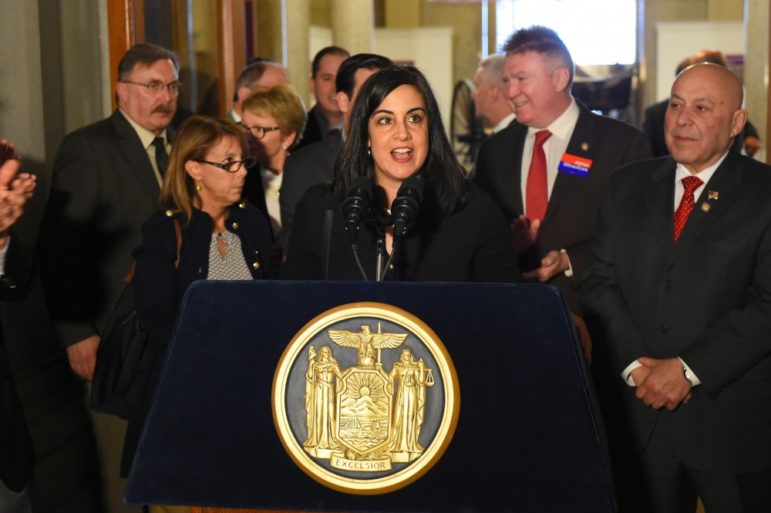
Nicole Malliotakis
Property taxes are easily one of the top issues affecting neighborhoods across our great city. Whether it’s my district which contains parts of Staten Island and Southwest Brooklyn or residential neighborhoods in Queens or the Bronx, you would be hard-pressed to find a lower- to middle-income homeowner who hasn’t seen their property tax bill skyrocket over the past five years. City Hall’s insatiable appetite for spending has led to a bloated budget that’s more than 25 percent larger than Mayor Bloomberg’s final budget, and the increasing burden placed on property taxes has become a leading reason why New York has become so unaffordable for homeowners and renters alike.
Perhaps even more frustrating is that the low- and middle-income communities in our city are bearing the brunt of the burden, essentially subsidizing the property taxes of our city’s most wealthy and affluent areas. Let’s take my home and Mayor de Blasio’s home to illustrate this point.
In 2017, my tax home in the Great Kills section of Staten Island was valued at $559,000 and my tax bill was $5,485. Meanwhile, Mayor de Blasio’s home in the much more exclusive neighborhood of Park Slope, Brooklyn had a tax bill of $3,581 for a home valued $1.6 million–three times as much.
Collectively, Class 1 homeowners on Staten Island’s South Shore shelled out $226.7 million, three times more than those in Park Slope, Brooklyn ($81.4 million) despite both Council districts having properties with an aggregate market value of $24 billion. Homeowners on Staten Island’s North Shore, also paid more property tax ($110 million) than those in de Blasio’s district despite the North Shore having half the market value ($12 billion). Likewise, in the Brooklyn Council district representing Bay Ridge, Dyker Heights and Bensonhurst, the combined market value of Class 1 properties totaled $19.5 billion and homeowners paid $137 million in property taxes, still well above what homeowners in more expensive neighborhoods in Brooklyn pay.
Canarsie, Brownsville, Flatbush, Mill Basin, Gerritsen Beach, Brighton Beach, Manhattan Beach, Gravesend, Marine Park, Midwood, Sheepshead Bay, Bergen Beach and Bath Beach are just a few of the other neighborhoods in Kings County that suffer by paying double or triple what that their neighbors in Park Slope, Carroll Gardens, Brooklyn Heights and Manhattan with much higher property values are paying.
Communities in Queens are no exception either. Jamaica, Hollis, Cambria Heights, St. Albans, Queens Village, Middle Village, Douglaston, Bayside, Bellerose, Floral Park, Fresh Meadows, Rosedale, Ozone Park, Little Neck, Flushing, College Point, Whitestone, Elmhurst, East Elmhurst, Jackson Heights, Glendale, Maspeth, Woodside, and Briarwood are also on the hook for nearly the highest tax rates in the city. The Rockaways, Broad Channel, Breezy Point and Howard Beach are among the hardest hit when it comes to the current property tax system. They pay an effective tax rate of 0.93 percent, nearly triple the rate of 0.32 percent that the mayor and many of his neighbors in Northwestern, Brooklyn. In fact, the district in which the mayor resides pays the lowest effective tax rate in the five boroughs!
It’s plain wrong and the disparity must come to an end.
Recently I announced my proposal to modernize our property tax system and make it fair.
To start, assessments should be based on market value, not some antiquated and convoluted formula no one can understand, and trendiest neighborhoods should not be safeguarded from paying the same property tax rate as the rest of the city. If the highest effective tax rate paid in the city at 1.05 percent and the lowest is 0.32 percent, a uniform rate for all should be met in the middle.
The city should also consider providing a property tax cap for seniors who are 65 and older, have fixed incomes under $75,000 and have lived in their residence for at least 20 years. This is primarily a protection for senior citizens living in the more expensive neighborhoods in the city who have seen their property values increase greatly during the 20+ years. In this case property taxes would be capped based on a designated percentage of the individual’s income to prevent senior citizens from being forced to sell due to inability to pay their annual property tax bill.
Finally, New York City should implement a 2 percent cap on the growth of its property tax levy, which is the amount of money the city raises via property tax. Currently, New York City is one of the few municipalities in the state of New York that does not have a cap on its levy. As a result, under de Blasio and the Council the city’s property tax levy has increased by a whopping 44 percent to over $27 billion. Let’s impose the cap and stop treating homeowners like personal piggy banks.
These suggestions should be on the table as the mayor’s property tax commission, which I fought very hard to get established, develops proposals to address these inequities. I’m eager to get to work with the mayor and my colleagues to finally fix what has been an unfair system for far too long. Owning a home has always been a tenet of the American dream and the ability of low and middle income families to do so will depend on our solution.
Nicole Malliotakis represents Brooklyn and Staten Island in the State Assembly. She was the Republican candidate for Mayor of New York City in 2017.



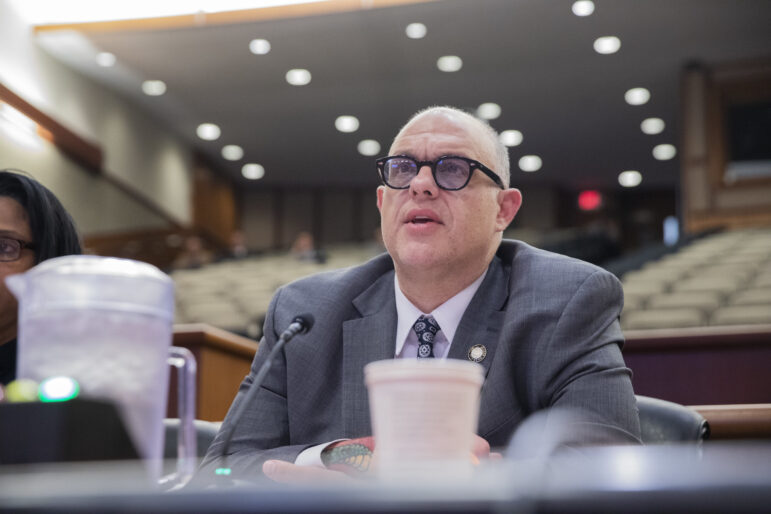
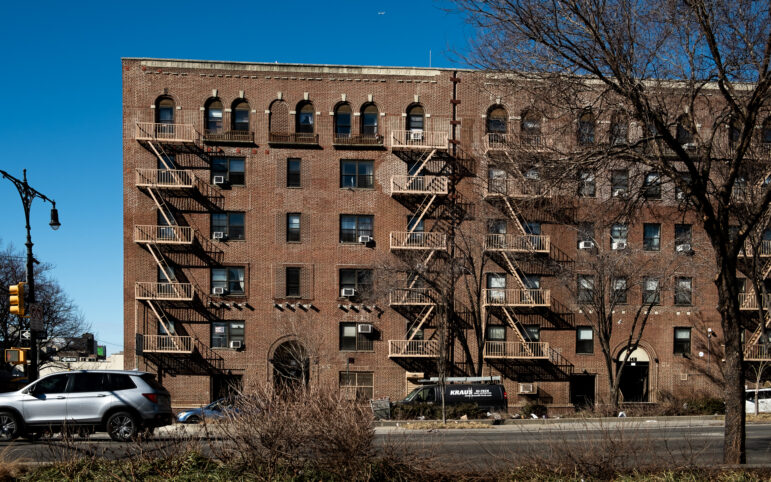
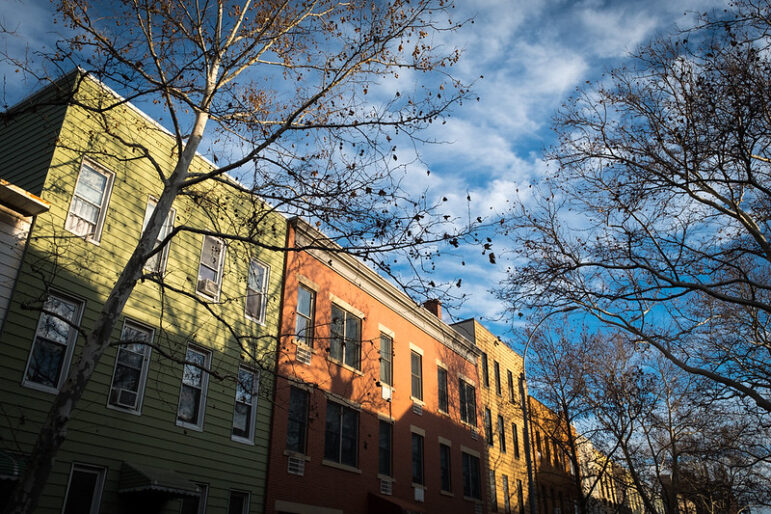
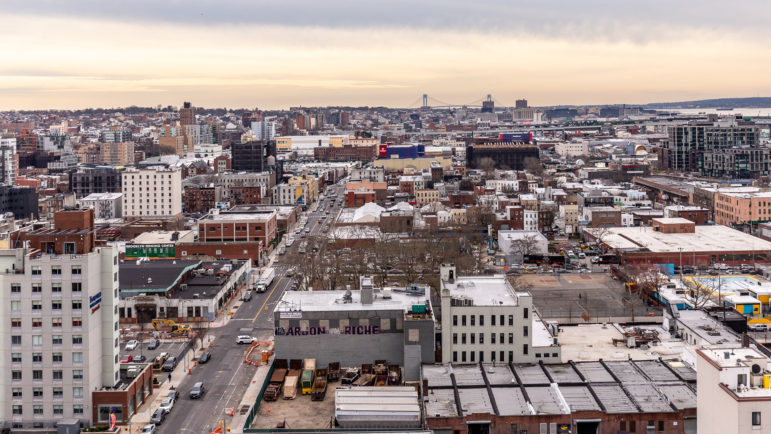


5 thoughts on “CityViews: Here is How New York City Can End Property-Tax Inequality”
Pingback: CityViews: Here is How New York City Can End Property-Tax Inequality
hello I am struggling hard in Staten island taxes are 9000 peer year and I collect social security
is there any update? will staten island see a change this year please reply
Good, informative article that accurately describes the situation that my neighbors and I are experiencing in our neck of the woods (Marine Park). Glad to hear that someone is working on this, but from the homeowners’ end, now what? Where do we go from here? How do we make this front and center for NYC government? Additionally, as a small, local business owner, I can attest that NYC’s affront doesn’t end with homeowners. The local tax laws are such that NYC treats small businesses like personal piggy banks too, taking their unearned share off the top before my employees and I can. I did not know that I was entering into an “partnership” with NYC when I opened my business years ago. They behave like no other municipality while claiming to be supportive of small businesses. Between that and the property tax disparity, it’s enough to want to leave NYC altogether, but middle class homeowners and small business owners deserve so much better than that, and we should not have to surrender to this form of governance.
is any one following this?
Our property taxes are making it difficult to stay in our home. I do not know why we had such an increase because we do not have anything nice in the area.